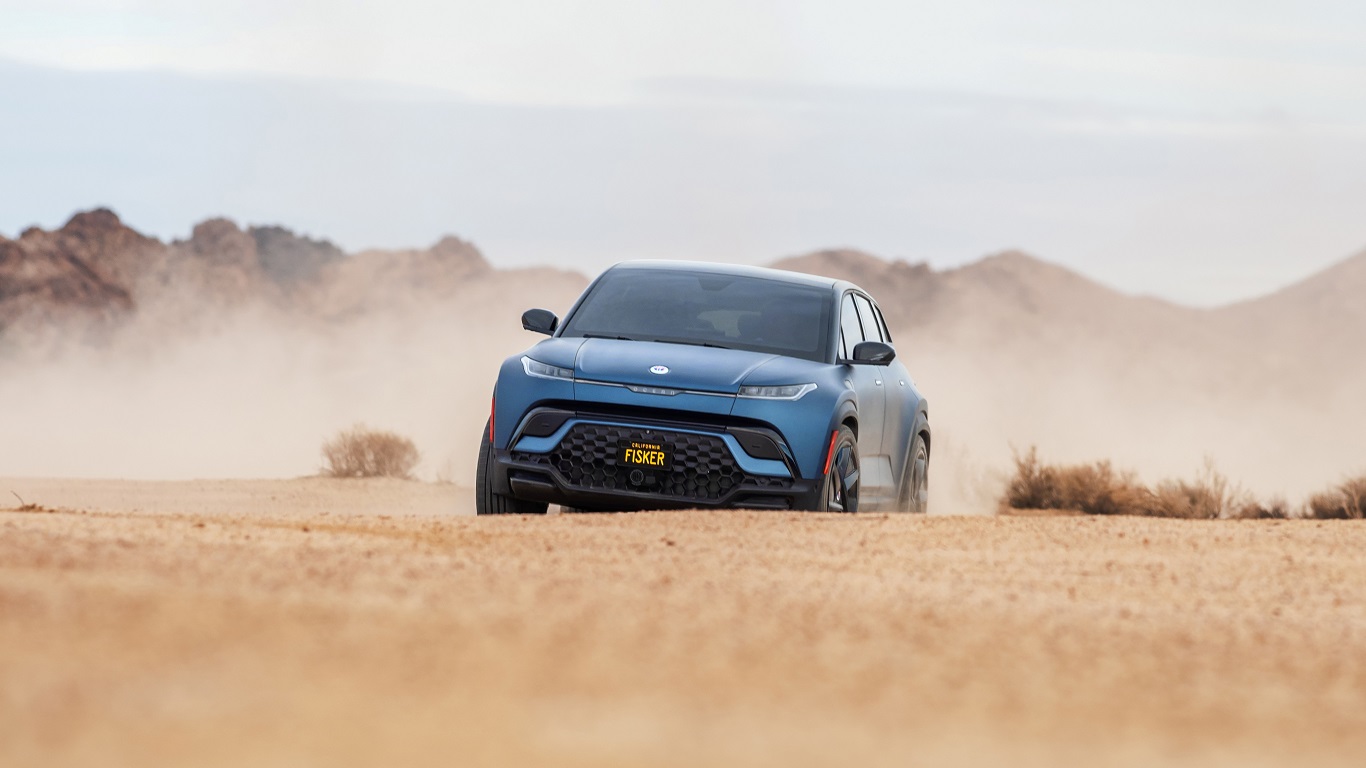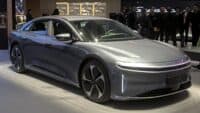
After about an hour of Thursday’s regular trading session, the Dow Jones industrials were up 0.43%, the S&P 500 up 0.64% and the Nasdaq up 0.65%. New claims for unemployment benefits came in well below expectations, and the second estimate of gross domestic product growth came in at 2.7%, down from the preliminary estimate of 2.9%. Both indicate a slightly cooling U.S. economy.
After U.S. markets closed Wednesday, Nvidia beat both earnings per share (EPS) and revenue estimates despite taking a big hit in its gaming sales. The company’s comments on its AI plans carried the most weight, however. Shares traded up more than 14% Thursday morning.
Coterra Energy also beat top-line and bottom-line estimates and increased its base dividend by $0.20 per share to $0.80. It also is targeting a return to shareholders of the base plus at least 50% of free cash flow to shareholders. The free cash flow return, however, may be supplemented by a new $2 billion share buyback program. The stock traded up 6.9%.
eBay also beat analysts’ EPS and revenue estimates, but the company’s outlook indicated that boosting sales may not be working out as well as the company is saying. Sales are projected to be flat year over year in the current quarter, after declining nearly 4% in the fourth quarter. Shares traded down 6.5%.
Electric vehicle (EV) maker Lucid posted a narrower-than-expected loss per share but missed the consensus revenue estimate. Even the company’s plan to double production this year fell short of expectations. The stock traded down 17.2%.
Before markets opened on Thursday, Alibaba topped both EPS and revenue estimates. The company fired 19,000 workers last year, including 4,000 in the fourth quarter. The e-commerce giant faced a slow Chinese economy as a result of the strict COVID-19 lockdowns. Cutting costs remains a focus going forward. Shares traded up 2.1%.
Newmont missed the consensus EPS estimate by a penny while topping the revenue estimate. Gold production is expected to be roughly flat year over year in 2023. Newmont has offered to buy Australian gold miner Newcrest Mining for $17 billion, looking to boost production. That deal is far from complete. Shares traded up about 0.1%.
Nikola reported a smaller-than-expected per-share loss and a big miss on revenue, and it issued downside revenue guidance for both the current quarter and the full 2023 fiscal year. Shares traded down 6.0%.
Block, Carvana and Warner Bros. Discovery are expected to report results after Thursday’s closing bell. There are no notable reports scheduled for Friday.
Lordstown Motors Corp. (NASDAQ: RIDE) was tentatively scheduled to report results after markets closed Monday. The company announced Thursday morning that its earnings release would be delayed a week until Monday, March 6. That was not the worst news. Lordstown also said that the company was experiencing performance and quality issues with certain components of its Endurance EV pickup. Lordstown has had to halt product and deliveries.
Here are two companies, both EV makers, set to report results first thing Monday morning.
Fisker
Since its SPAC IPO in October 2020, shares of luxury EV maker Fisker Inc. (NYSE: FSR) have dropped by about 36%. Over the past 12 months, the stock is down more than 44%. The company began producing cars in early November, but several features were missing from the delivered vehicles. Founder Henrik Fisker believes that getting cars to buyers is critical to success. It is the old tech mantra, “Ship it now. We’ll fix it in the next release.” The company’s outlook will carry a lot more weight than its fourth-quarter results.
Only 10 analysts cover Fisker, and just four have a Buy or Strong Buy rating. Another three rate the stock at Hold. At a recent share price of around $6.50, the implied gain based on a median price target of $14.00 is about 115.4%. At the high target of $21.00, the implied gain is about 223%.
Analysts expect Fisker to post revenue of $1.02 million in the fourth quarter, which would be up from $40,000 in the year-ago quarter and $10,000 in the prior quarter. The per-share loss is forecast at $0.42, better than the loss per share of $0.47 in both the prior and year-ago quarters. For the full 2022 fiscal year, revenue is forecast at $950,000, up from $110,000 last year. Analysts expect the company to post a loss per share of $1.61, worse than last year’s loss of $1.14.
Fisker is not expected to post a profit in any of 2022, 2023 or 2024. The projected enterprise value-to-sales multiple for 2023 is 1.0 and for 2024 is 0.5. Forecast revenue for 2023 totals $1.93 billion and for 2024, $3.8 billion. The stock’s 52-week trading range is $6.21 to $14.74. Fisker does not pay a dividend, and the total shareholder return for the past year was negative 42.44%.
Li Auto
Beijing-based Li Auto Inc. (NASDAQ: LI) has seen its share price fall by about 14.5% over the past 12 months. For the year to date, shares are up more than 16%. Two weeks ago, the company launched its L7 model, a plug-in hybrid challenger to Tesla’s Model Y all-electric EV. At the time the L7 was introduced, the base price was CNY319,800 ($46,365) compared to the Model Y price in China of CNY259,900 ($37,680). Li Auto delivered 133,246 electrified vehicles last year, up 47.2% compared to 2021.
Of 27 brokerages covering the firm, 25 have a Buy or Strong Buy rating. At a share price of around $23.70, the upside potential based on a median price target of $32.70 is 38%. At the high price target of $58.00, the upside potential is around 145%.
Fourth-quarter revenue is forecast at $2.56 billion, up almost 95% sequentially and by 53.3% year over year. Analysts have forecast EPS of $0.05, compared to a loss of $0.18 per share in the prior quarter and EPS of $0.11 in the same quarter last year. For the 2022 fiscal year, current estimates call for a loss per share of $0.05, down from EPS of $0.13 in 2021, on sales of $6.56 billion, up 54.4%.
Li Auto’s stock trades at 59.3 times estimated 2023 earnings of $0.40 and 29.0 times estimated 2024 earnings of $0.82 per share. The stock’s 52-week range is $12.52 to $41.49, and the company does not pay a dividend. Total shareholder return in the past year is negative 14.45%.
100 Million Americans Are Missing This Crucial Retirement Tool
The thought of burdening your family with a financial disaster is most Americans’ nightmare. However, recent studies show that over 100 million Americans still don’t have proper life insurance in the event they pass away.
Life insurance can bring peace of mind – ensuring your loved ones are safeguarded against unforeseen expenses and debts. With premiums often lower than expected and a variety of plans tailored to different life stages and health conditions, securing a policy is more accessible than ever.
A quick, no-obligation quote can provide valuable insight into what’s available and what might best suit your family’s needs. Life insurance is a simple step you can take today to help secure peace of mind for your loved ones tomorrow.
Click here to learn how to get a quote in just a few minutes.
Thank you for reading! Have some feedback for us?
Contact the 24/7 Wall St. editorial team.
 24/7 Wall St.
24/7 Wall St.



